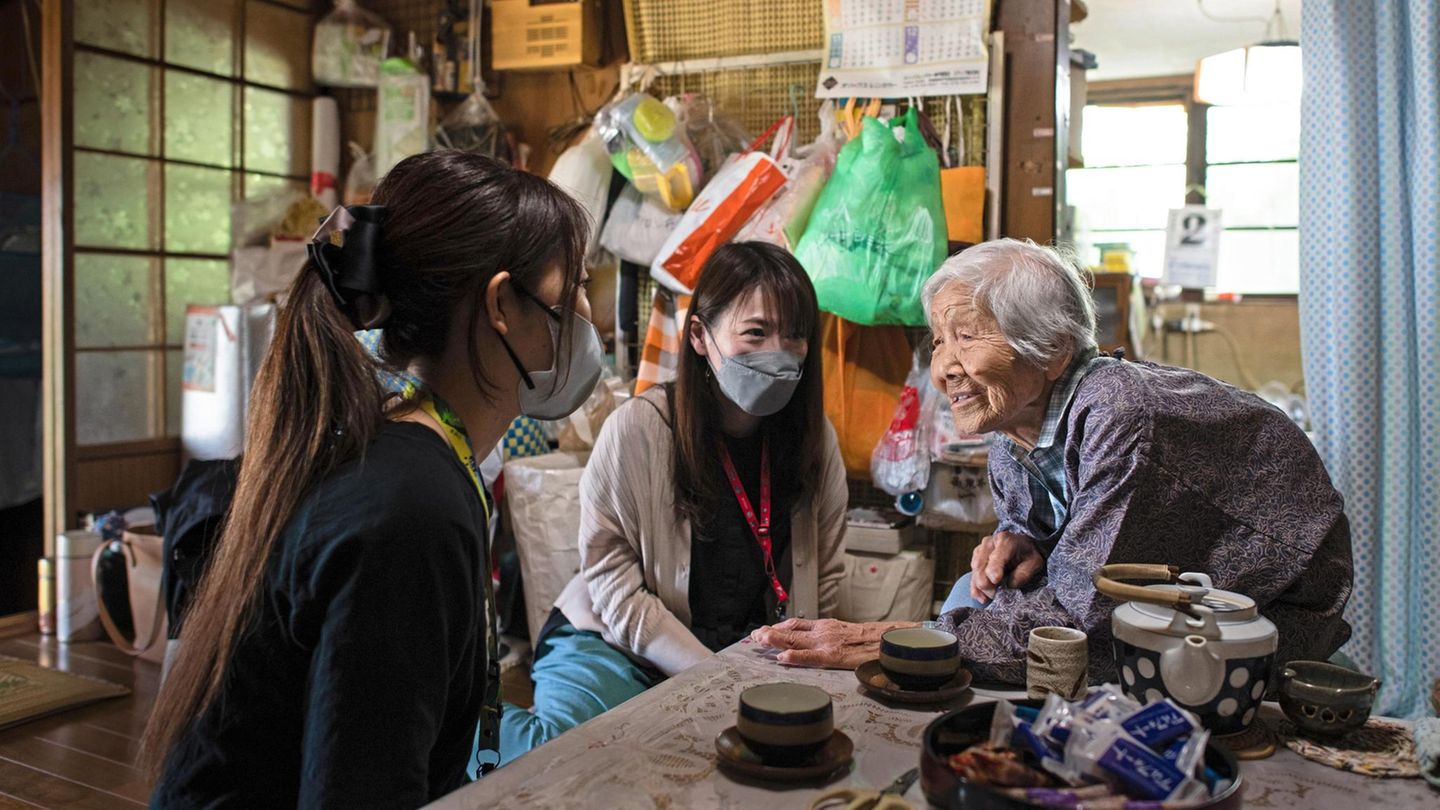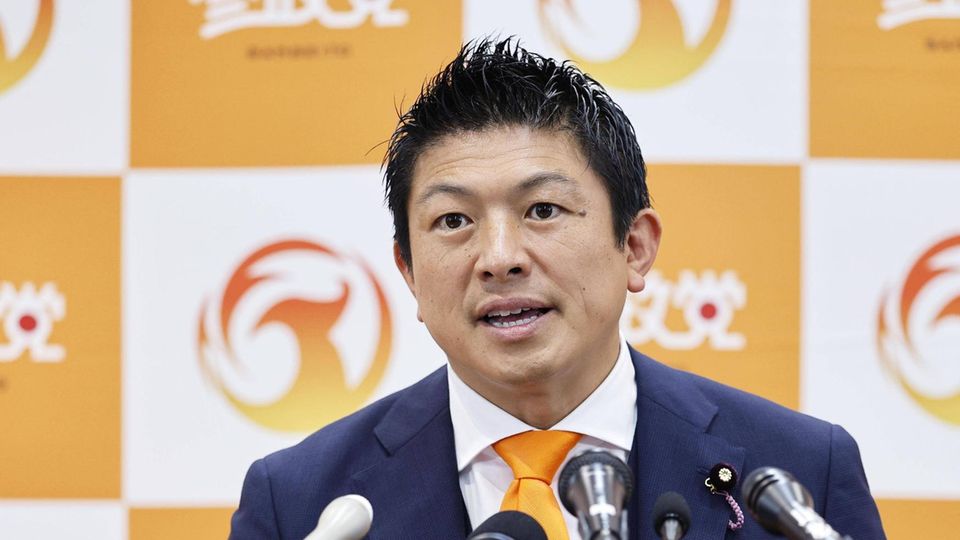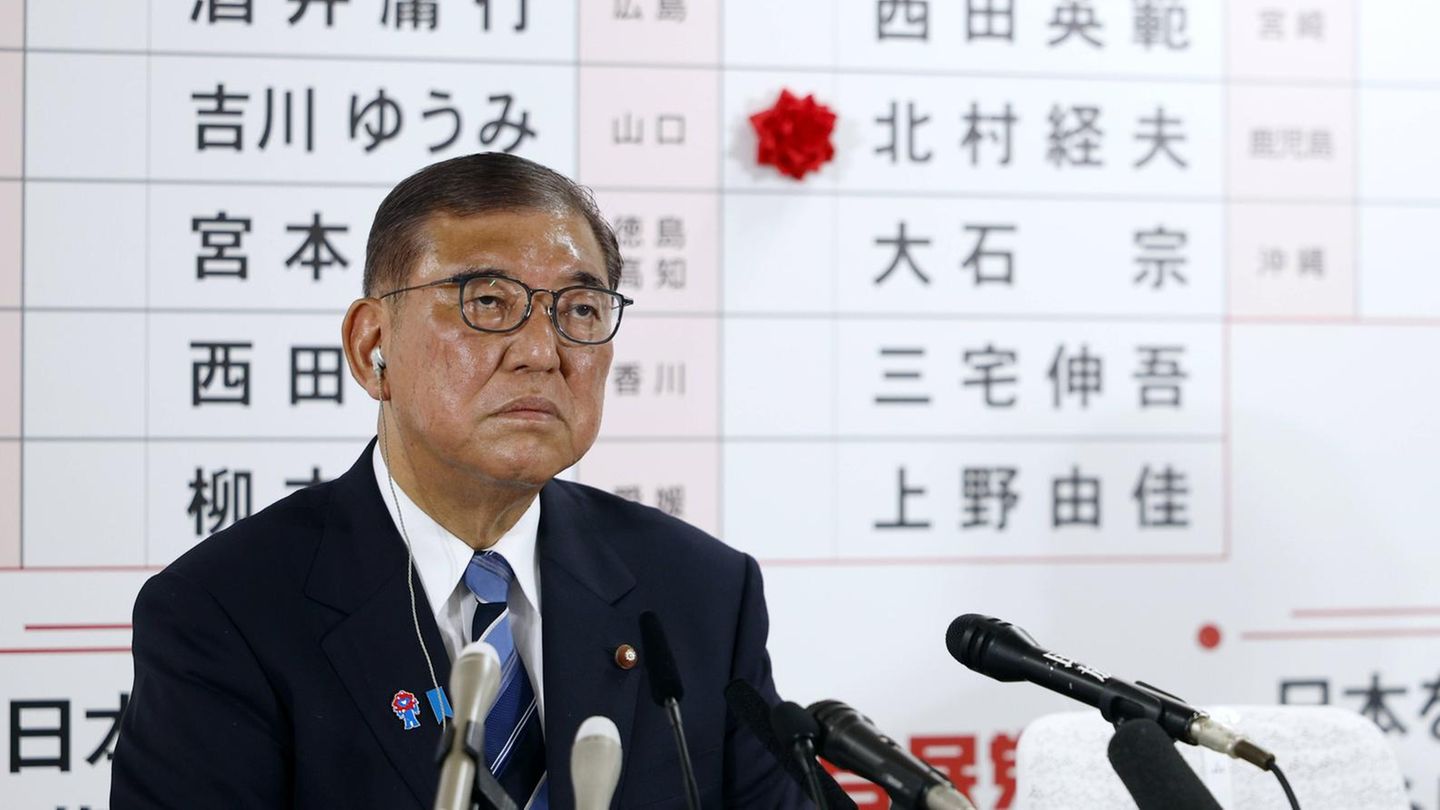Anti-immigration party
Japan’s government loses majority – but head of government Ishiba wants to continue
Copy the current link
Add to the memorial list
Prime Minister Ishiba’s coalition no longer has a majority in both parliamentary chambers. A “Japan-First” party clears away. The country threatens political instability.
After a disappointing result in the election to the Japanese upper house, Japan’s head of government Shigeru Ishiba wants to continue to rule. When asked whether he would stay in office, Ishiba said on Monday to Japanese media: “That’s right.” According to the Japanese television station NHK, his government coalition had previously lost the majority in the upper house. The defeat had emerged.
As Japanese media reported, citing their own projections, the Conservaive Government Party LDP and its coalition partner Komeito only won around 41 out of 125 to fill. In order to defend their majority in the upper house, the government should have won at least 50 seats. “It is a difficult situation that we have to face with a lot of humility and seriously,” Ishiba told the NHK broadcaster.
The Ishiba, which has been in office since October 2024, leads a coalition that has no majority in the lower house. He already said on Sunday that he accepted the “hard result”. When asked whether he wanted to stay head, he replied: “That’s right.” According to its own statements, the current focus of the government is the impending tariffs of the US government, which the exporting nation Japan would be difficult for.
Political professor Hidehiro Yamamoto told the AFP news agency that the head of government could lose his post after the election slump. But it was still unclear who could follow him. Ishiba will probably be called up for a meeting later on Monday and inform about his whereabouts in office, reported the Jiji Press Japanese news agency.
Rising consumer prices are the topic when choosing an upper house in Japan
According to the surveys, many voters were dissatisfied with the government’s reaction to increasing consumer prices. In particular, the increase in travel prices caused frustration. Opposition parties apparently hit a nerve with their demands for tax cuts and higher social spending. “Most households want a reduction in consumption tax to combat inflation, which the LDP rejects,” said David Boling from the consulting firm Eurasia Group. The opposition took up this and made it into its central message.
In the election on Sunday, half of the 248 seats in the upper house was for vote. The government coalition is weakening the defeat, which had already lost its majority in the more powerful lower house in October. The loss of control over the upper house is likely to continue to affect Ishiba politically.
How Japan deals with his old population

The 92-year-old Toshie Ueno is the last resident of her village on the Japanese island of Shikoku. City employees visit them regularly to look for the right
© Noriko Hayashi/Panos Pictures Panos
More
Open the image subtitle
Back
Further
Sanseito party -critical party clearly increases
As a surprise of the election of the upper house, the strong performance of the right anti-immigration party Sanseito was considered. The movement, which was created on YouTube a few years ago, had promoted their policies with a “Japan first” campaign and warnings of a “silent invasion” by foreigners. With “Japan first” one wants to express the resistance to globalization in order to restore the livelihood of the Japanese, party leader Sohei Kamiya told the broadcaster Nippon Television after the vote. He denied a fundamental xenophobia: “I do not say that we completely stop immigration or that every foreigner should leave Japan.”
In Japan, which is proud of his homogeneous society, the number of residents born abroad achieved a record value last year with around 3.8 million. This corresponds to three percent of the total population, a significantly lower proportion than in the USA or Europe. However, Japanese society is much less prepared for hinge than European companies.

Japan’s media report more about negative pages of immigration such as abuse of national health insurance and more traffic accidents. In addition, there is the boom in foreign tourists. In the media there is often talk of rapid behavior. More and more Japanese feel uncomfortable.
According to the forecasts, Sanseito could win at least 13 seats after having a seat beforehand. Her main focus on immigration has postponed the political debate in Japan to the right.
Japan threatens political instability
The party was created on the video platform YouTube during the Covid pandemic. There she initially spread conspiracy theories about vaccinations and the alleged machinations of global elites. With 400,000 subscribers, the party’s YouTube channel today has more than any other political force in the country and three times as many as the ruling party LDP of Prime Minister Ishiba. Men between the ages of 20 and 40 form the core of the followers.
The 47-year-old Kamiya-a former supermarket manager and English teacher-told the Reuters news agency before the vote that he was inspired by the “bold political style” by US President Donald Trump. He himself won the first seat for the party in 2022.
The business nation Japan, which is part of the G7 group, is now threatening political instability. The loss of the majority in the upper house also weakens the government alliance of the conservative Prime Minister Ishiba. For Ishiba’s party LDP, which Japan has ruled almost continuously since 1955, the poor performance in the lower house election in October was already a humiliation. The party is weakened by a corruption scandal that had forced Ishida’s predecessor Fumio Kishida to resign.
“Even if the government coalition can still cling to power, a lot indicates that it will be replaced in the next lower house election,” said Axel Klein, professor of political science at the University of Duisburg-Essen, the German Press Agency in Tokyo. “The electorate now believes that the opposition has realistic chances of taking over the government, and will therefore be much more willing to vote for one of the opposition parties at the next election,” said Klein.
Note: This post has been updated.
AFP · dpa · Reuters
RW/Mariko Katsumura/Kantaro Komiya/Tim Kelly/John Geddie/Kyoko Hasegawa
Source: Stern
I have been working in the news industry for over 6 years, first as a reporter and now as an editor. I have covered politics extensively, and my work has appeared in major newspapers and online news outlets around the world. In addition to my writing, I also contribute regularly to 24 Hours World.




